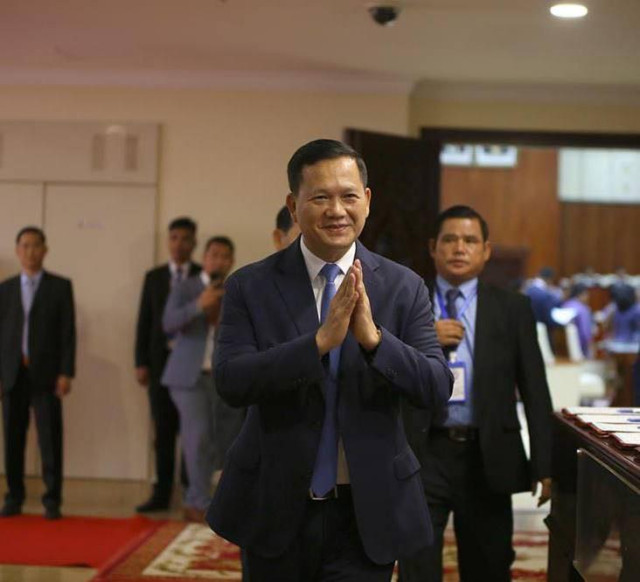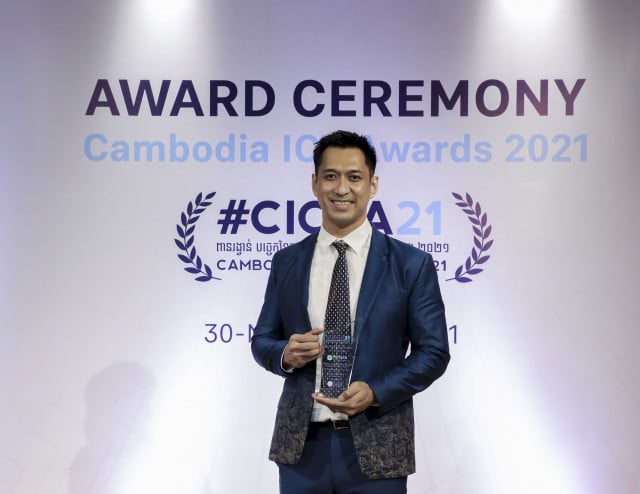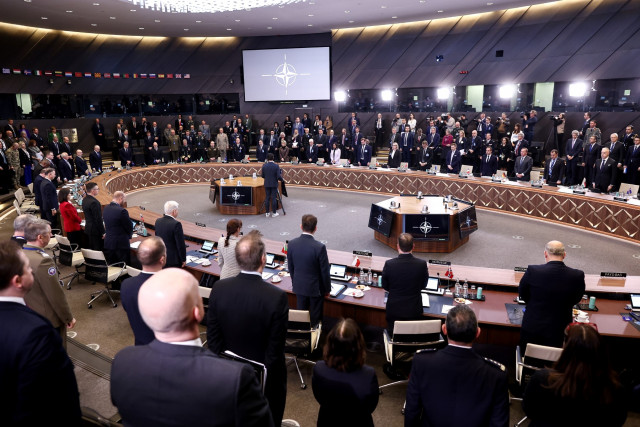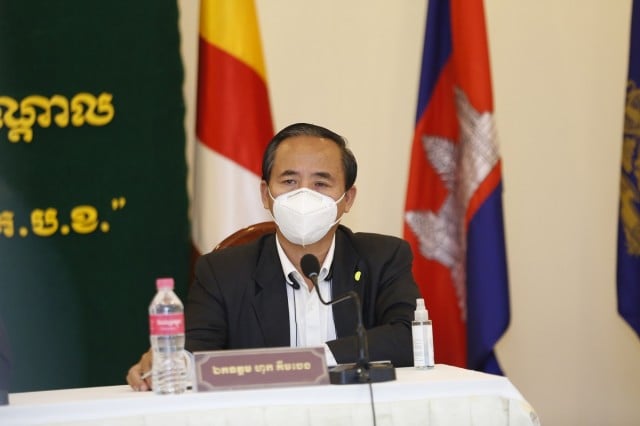Bumpy Road Ahead as Hun Manet Takes Reins

- By Phoung Vantha
- August 23, 2023 5:28 PM
PHNOM PENH – Prime Minister Hun Manet has set out his new government’s policies for expanded healthcare, technical training for young people and aid for the poor and vulnerable.
His six-point priority program also includes the inclusion of the informal sector into the formal economy, developing market access for farm products, and modernizing agriculture techniques.
He told National Assembly lawmakers during their first session on Aug. 22 he would focus on protecting peace, stability, and the independence and national sovereignty of the country, while promoting economic growth, improving the livelihood of the people, increasing social sustainability to climate change, and new green investment policies.
However, Aun Chhengpor a researcher at the International Institute for Strategic Studies think tank, said Hun Manet’s immediate challenges include mounting economic woes in the financial and property markets, the country’s tarnished international reputation over scam-related activities, and a foreign policy trapped between superpowers.
“An oversized number of political appointees in the cabinet to reward loyalists could drag down governance efficiency and quality,” Chhengpor said.
“It is in the country’s interests to deflate and introduce merit-based personnel management in the government.”
The Manet government's longer-term challenges were how to navigate Cambodia away from the middle-income trap and prepare its country and people for the fast-approaching impacts of disruptive technologies and climate change.
“He will rule over the people who are younger, more daring, better educated, and more demanding than the ones led by his father.
“High performance will be a must since no failure is acceptable in these social contracts that the people tolerate the CPP’s political monopoly in exchange for deliverable prosperity and stability.
Cambodian Institute for Cooperation and Peace’s research fellow Vann Bunna said that another challenge is fighting corruption as the new government was formed by nepotism which leads to corruption which is a big challenge for economic reform and social justice.
Chhengpor said that regarding the political system, not much is expected to change. Hun Manet inherits the country from his father in the context that all political opponents are marginalised to barely exist.
“To change that means a less powerful and monopolistic CPP. Will he want that to happen? Only the new prime minister has the answer,” he added.
Bunna said that it was a big change in Cambodia's political history but there was not much change in policy terms or political management.
“We can say that there was a change in terms of leadership but the individual who led still leads the system which was created by the old political system that was really hard to change,” he said.
Both Chhengpor and Bunna said they were waiting to see how the new government would solve the nation's big crises, such as economic, law enforcement and democracy.
Hun Manet, who served as army commander, is a graduate of the US Military Academy (West Point) and holds degrees from the US and the UK. He promised to serve the national interest and every Cambodian when he addressed the National Assembly for the first time as PM.
“As the head of the government, I give my promise to the whole nation that I will commit to leading and ensuring the successful implementation of the policies,” he said.
He said healthcare would be expanded towards achieving universal coverage, vocational and technical training would be boosted for young people, and social assistance programs would be instigated for poor and vulnerable households.















